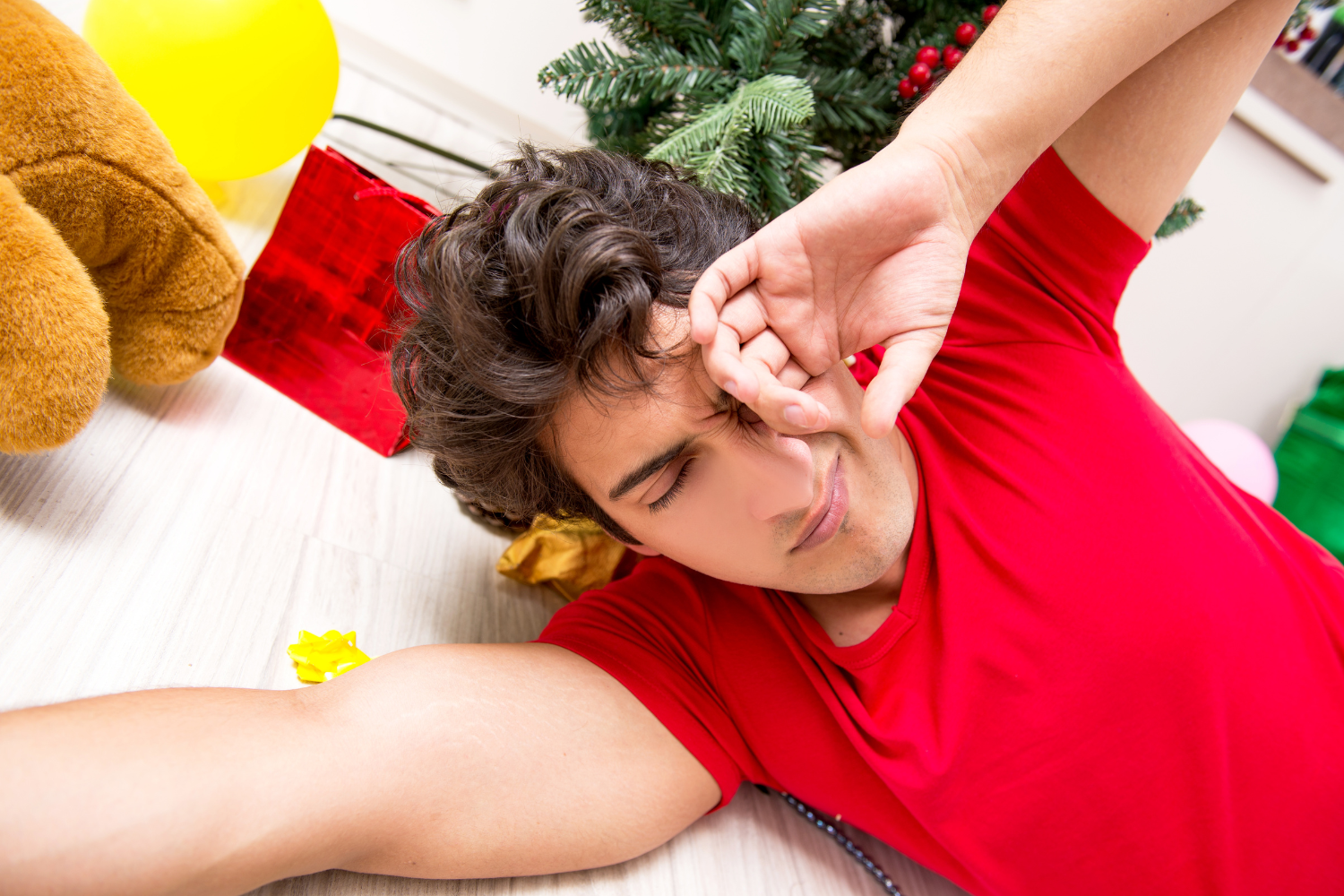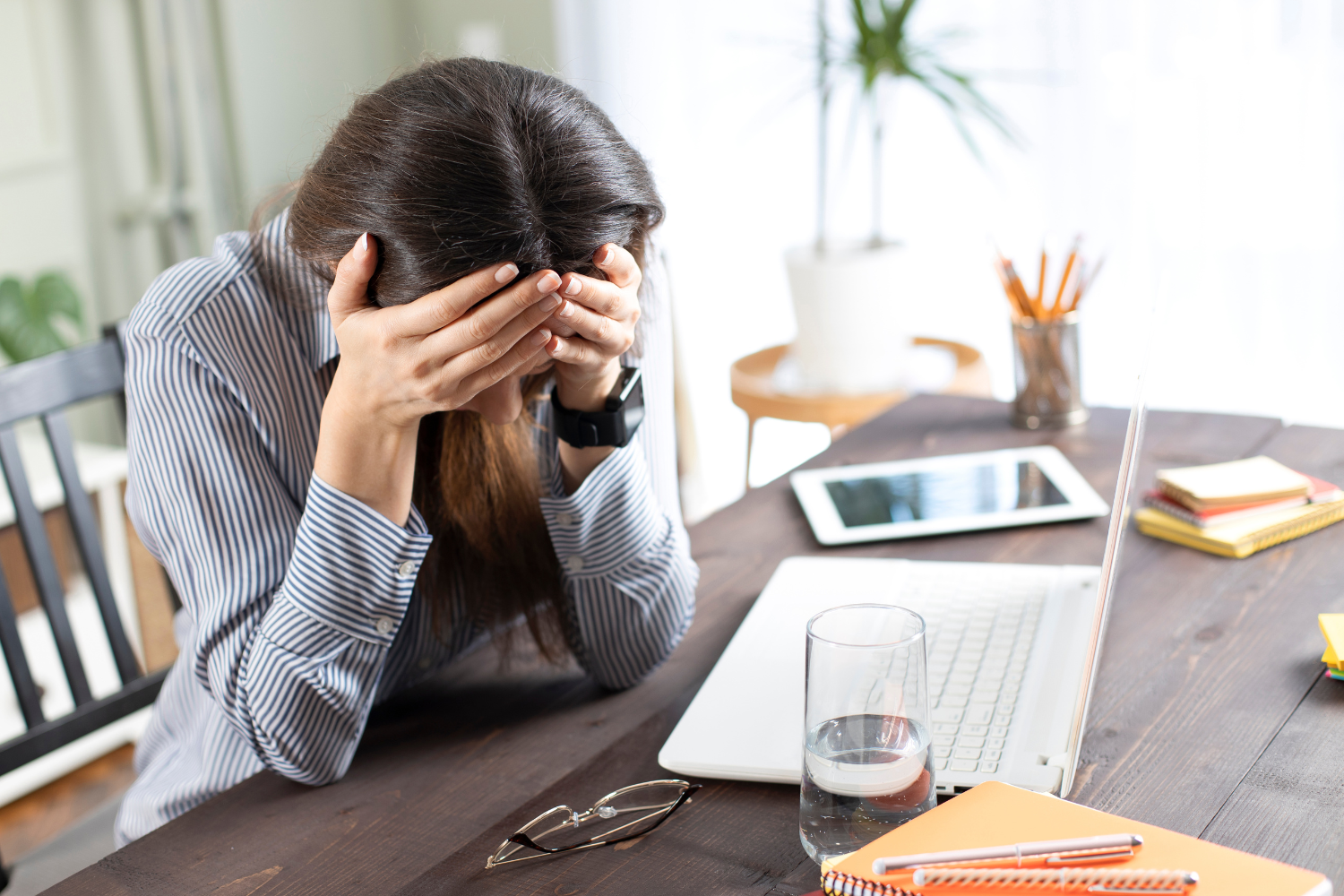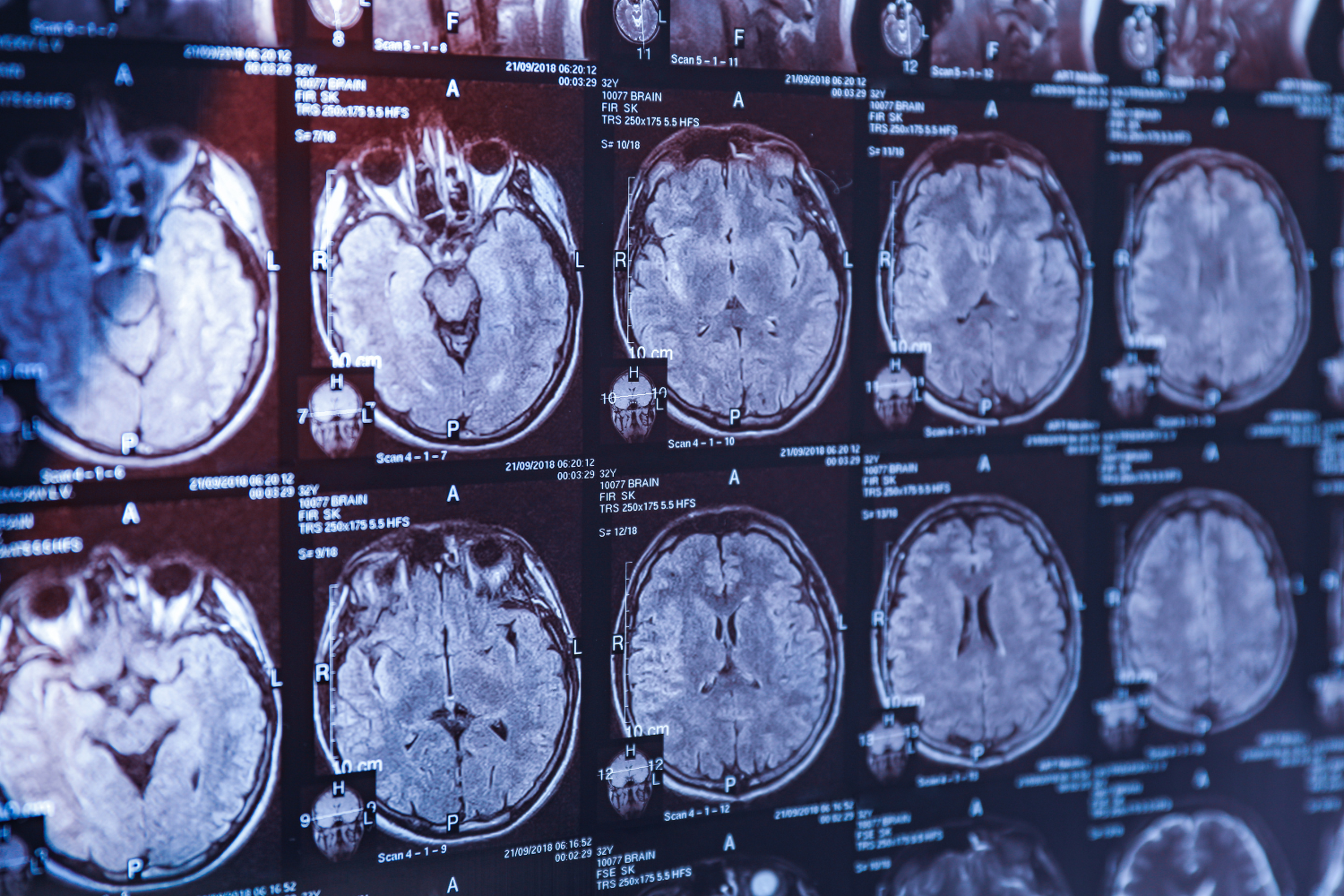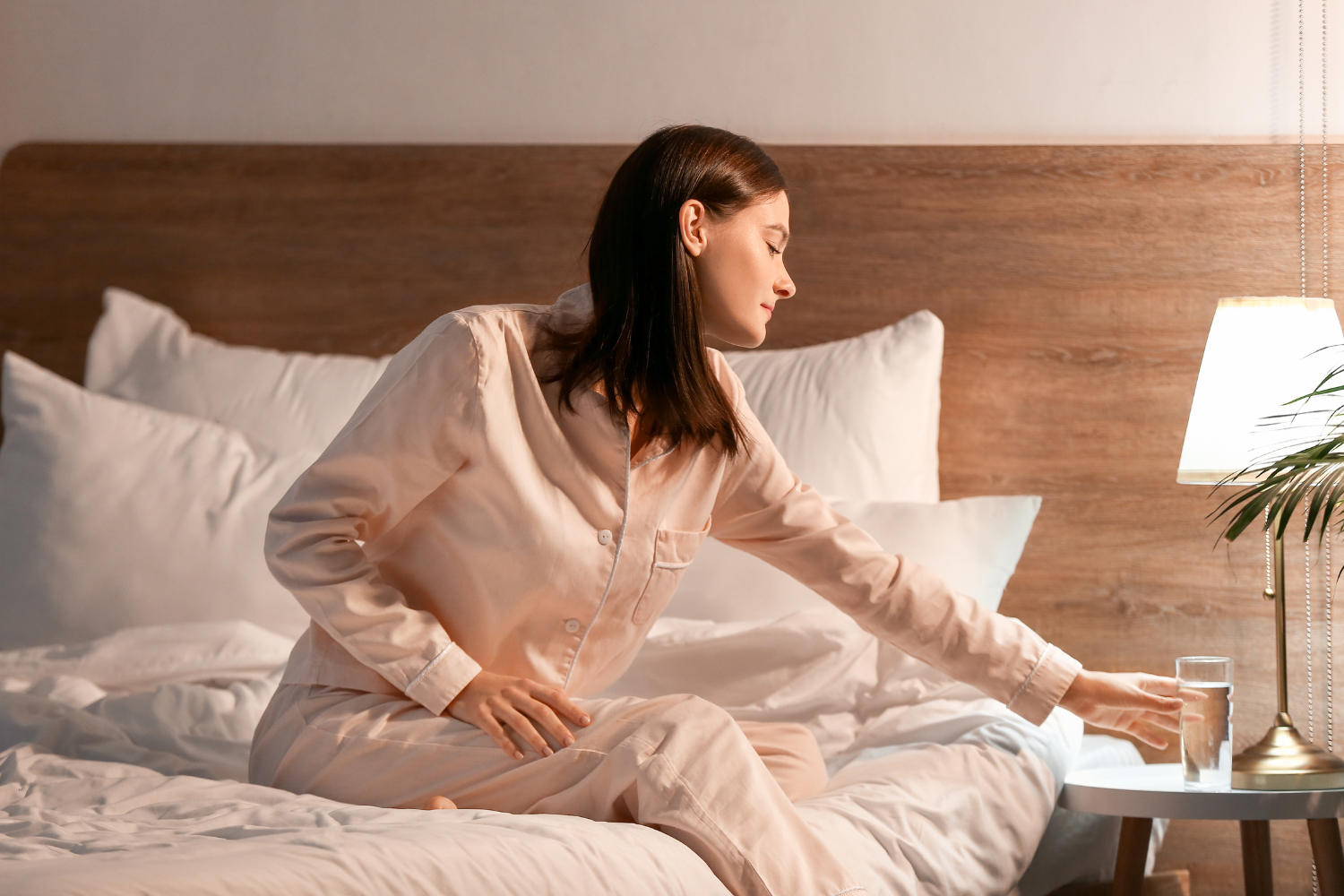Many people believe drinking alcohol helps them fall asleep faster, but alcohol and sleep quality don’t always go hand in hand. While alcohol acts as a sedative that can make the sleeping brain feel drowsy, it also interferes with normal sleep stages, especially rapid eye movement (REM) sleep and slow wave sleep, leading to poor sleep quality throughout the night.
Research in alcohol and sleep shows that alcohol consumption often shortens sleep onset latency but increases sleep disturbances later in the sleep cycle, leaving people with subsequent poor sleep and shorter sleep duration. Additionally, Alcohol can impair hydration and contribute to changes in electrolyte balance, which may influence how refreshed you feel upon waking.
How Does Alcohol Affect Sleep Quality?
Alcohol affects sleep quality in several ways. A drink before bed may make it easier to fall asleep, but alcohol consumption often reduces REM sleep and deep sleep, also known as slow-wave sleep. This means the sleeping brain misses critical stages of non-rapid eye movement (NREM) and rapid eye movement REM sleep needed for recovery.
Passing out after drinking alcohol is not the same as restorative rest because alcohol interferes with normal sleep architecture and increases sleep disturbances later in the night. The result is shorter sleep duration, poor sleep efficiency, and perceived sleep quality that feels low even if time in bed seems long.

What Are the Symptoms of Low Electrolytes After Drinking?
Alcohol on sleep is not the only concern, alcohol consumed in larger amounts also acts as a diuretic, which lowers electrolytes. Since electrolytes support hydration and energy metabolism, an imbalance can lead to noticeable problems the next day, including physical discomfort and sleep problems.
Fatigue and Grogginess
Low electrolytes after alcohol use can leave you feeling unusually tired the next morning. Even if you spent enough time in bed asleep, shorter sleep duration paired with disrupted hydration may increase sleep pressure, leaving you sluggish and struggling with insufficient sleep recovery.
Muscle Cramps or Weakness
Electrolytes such as sodium, potassium, and magnesium help regulate muscle contraction. When alcohol interferes with hydration, electrolyte shifts may be associated with symptoms such as cramping or weakness, which some people report noticing during the night.
Headaches and Dizziness
Electrolyte imbalance has been associated with symptoms such as headaches or dizziness in some cases, although individual responses vary. This makes it harder to stay focused during the day and harder to stay asleep at night.
Poor Concentration or Mental Fog
Electrolyte balance supports brain signaling and energy metabolism. When alcohol interferes with that balance, it can cause mental fog, poor concentration, and subjective sleep quality that feels worse, even if actual sleep duration was unchanged.
Disturbed Sleep Patterns
Some research suggests that hydration status may influence how rested you feel, although more study is needed on the role of electrolytes in sleep stages. This can lead to poor sleep, subsequent poor sleep cycles, and increased sleep disturbances, especially after binge drinking or high alcohol dose intake.

How Do Low Electrolytes Make Sleep Disruption Worse?
Low electrolytes can make sleep disruption worse because dehydration and imbalance affect how the sleeping brain moves through normal sleep stages. Sodium, magnesium, and potassium are key for hydration, muscle relaxation, and nerve signaling that support steady sleep cycles.
When alcohol intake depletes or shifts these nutrients, the result can be restless sleep, longer sleep latency, and difficulty staying asleep. These factors may contribute to less restorative sleep and next-day fatigue.

When Should You Stop Drinking Before Bed for Better Rest?
A practical way to reduce the effects of alcohol on sleep is to stop drinking two to four hours before bed. Alcohol acts quickly, and the later it is consumed, the more it interferes with sleep architecture, including REM sleep and non-rapid eye movement stages. Drinking closer to bedtime raises the chance of disrupted sleep patterns, poor sleep efficiency, and increased risk of insomnia symptoms through the night.
Practical Tips to Support Sleep if You Drink
There are ways to lessen the effects of alcohol on sleep quality by focusing on hydration, nutrition, and consistent sleep habits.
Stay Hydrated and Support Electrolyte Balance
Replacing fluids and adding electrolytes supports hydration and energy metabolism, reducing the chance of muscle cramps, headaches, or restless nights linked to alcohol consumption. This may support how refreshed you feel the next day and contribute to overall wellness.
Pair Alcohol with Nutrient-Dense Foods
Eating foods rich in protein, fiber, and minerals can slow alcohol absorption and help protect electrolytes from dropping too quickly. Pairing alcohol with nutrient-dense meals also supports sleep efficiency and may help support energy levels the next day.
Limit Nightcaps and Late Drinking
Nightcaps may feel like a sleep aid, but alcohol interferes with deep sleep and REM sleep. Limiting alcohol use later in the evening lowers the chance of shorter sleep duration, poor sleep, and increased sleep disturbances.
Create Good Sleep Hygiene Habits (Dark Room, Bedtime Routine)
A cool, dark environment, along with a regular bedtime routine, supports circadian rhythms and helps reduce sleep problems. Strong sleep hygiene can make it easier to fall asleep and stay asleep, even if alcohol intake sometimes disrupts normal sleep patterns.
Choose Mindful Drinking Practices
Moderate drinking and mindful choices about alcohol use help reduce sleep disruption and promote balanced drinking habits and help you make more mindful decisions around alcohol. Balancing alcohol and sleep habits this way supports better perceived sleep quality and healthier sleep patterns overall.

Alcohol and Rest: What It Means for Your Sleep Quality
Alcohol may shorten sleep onset but often lowers overall sleep quality, especially when it disrupts REM sleep, slow wave sleep, and normal sleep architecture. Low electrolytes after alcohol consumption can intensify fatigue, headaches, and disturbed sleep patterns, leaving you with poorer rest.
Focusing on hydration, balanced nutrition, and consistent sleep habits helps protect recovery. Drinkwel supplements provide nutrients that support hydration and liver function, both during drinking and as part of an overall wellness routine.
Frequently Asked Questions
Can alcohol really make you sleep better?
It may help you fall asleep quickly, but alcohol reduces restorative sleep stages and often leads to poor sleep quality.
Why do I wake up in the middle of the night after drinking?
Alcohol interferes with sleep cycles, causing more light sleep and frequent sleep disturbances later in the night.
How does dehydration or low electrolytes affect my sleep?
They increase the risk of restless sleep, headaches, and fatigue, lowering subjective sleep quality.
What are the best ways to support healthy sleep if I drink alcohol?
Stay hydrated, replenish electrolytes, eat nutrient-rich meals, and maintain a consistent bedtime routine.
Does alcohol make conditions like insomnia or snoring worse?
Some studies suggest alcohol can interfere with sleep cycles and may contribute to lighter or more fragmented sleep, which some people associate with snoring or disrupted rest.
References
-
Abbasi, B., Kimiagar, M., Sadeghniiat, K., Shirazi, M. M., Hedayati, M., & Rashidkhani, B. (2012). The effect of magnesium supplementation on primary insomnia in elderly: A double-blind placebo-controlled clinical trial. Journal of research in medical sciences : the official journal of Isfahan University of Medical Sciences, 17(12), 1161–1169. https://pubmed.ncbi.nlm.nih.gov/23853635/
-
Ebrahim, I. O., Shapiro, C. M., Williams, A. J., & Fenwick, P. B. (2013). Alcohol and sleep I: effects on normal sleep. Alcoholism, clinical and experimental research, 37(4), 539–549. https://doi.org/10.1111/acer.12006
-
Kalman, D. S., Feldman, S., Krieger, D. R., & Bloomer, R. J. (2012). Comparison of coconut water and a carbohydrate-electrolyte sport drink on measures of hydration and physical performance in exercise-trained men. Journal of the International Society of Sports Nutrition, 9(1), 1. https://doi.org/10.1186/1550-2783-9-1
-
Roehrs, T., & Roth, T. (2001). Sleep, sleepiness, and alcohol use. Alcohol research & health : the journal of the National Institute on Alcohol Abuse and Alcoholism, 25(2), 101–109. https://pubmed.ncbi.nlm.nih.gov/11584549/
-
Shirreffs, S. M., & Sawka, M. N. (2011). Fluid and electrolyte needs for training, competition, and recovery. Journal of sports sciences, 29 Suppl 1, S39–S46. https://doi.org/10.1080/02640414.2011.614269
-
Verster, J. C., & Penning, R. (2010). Treatment and prevention of alcohol hangover. Current drug abuse reviews, 3(2), 103–109. https://doi.org/10.2174/1874473711003020103
